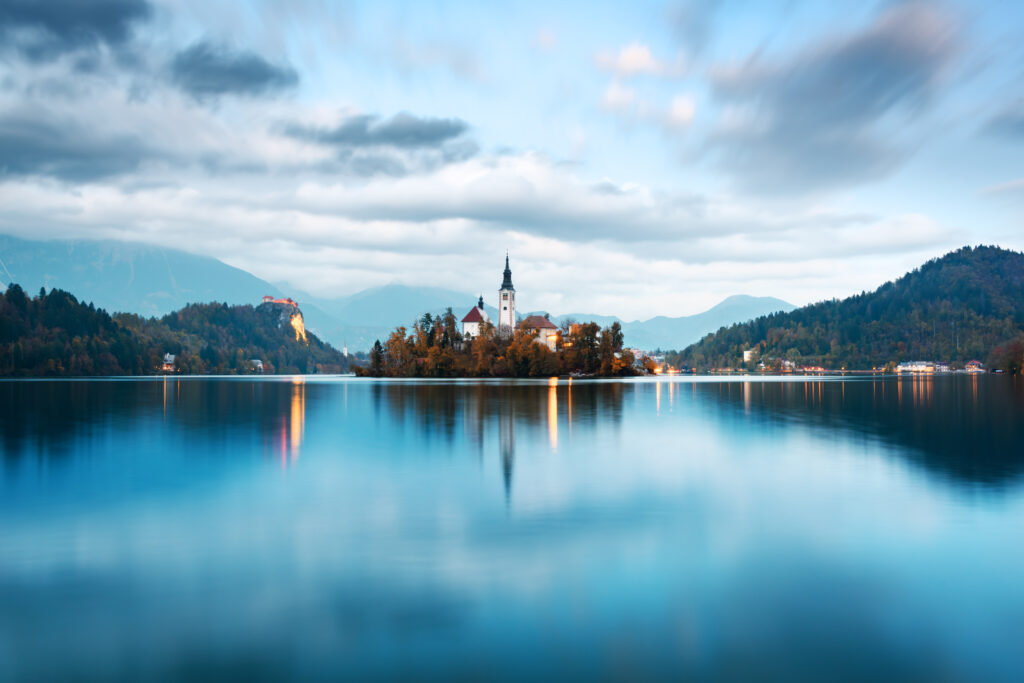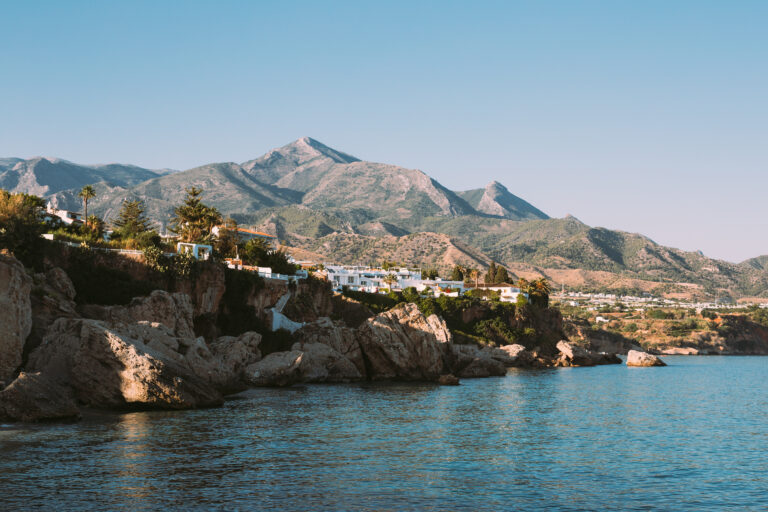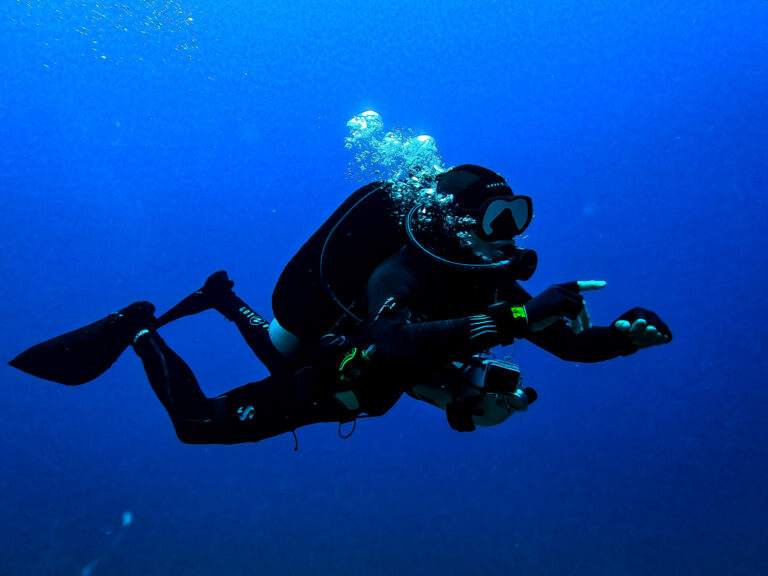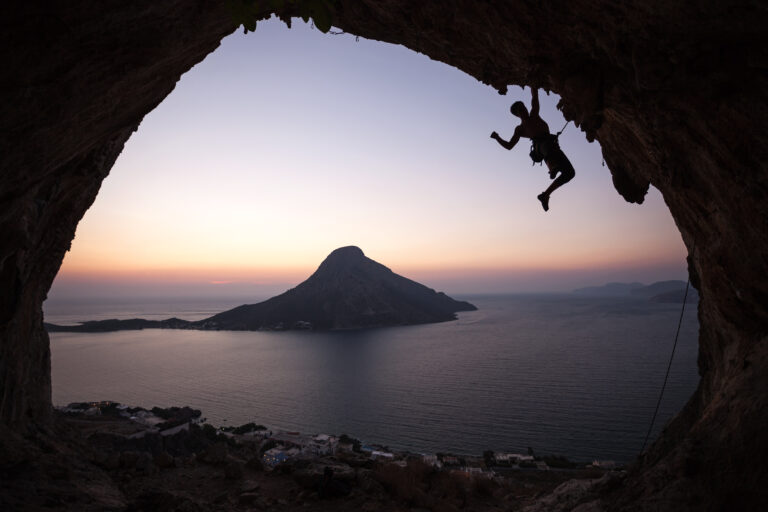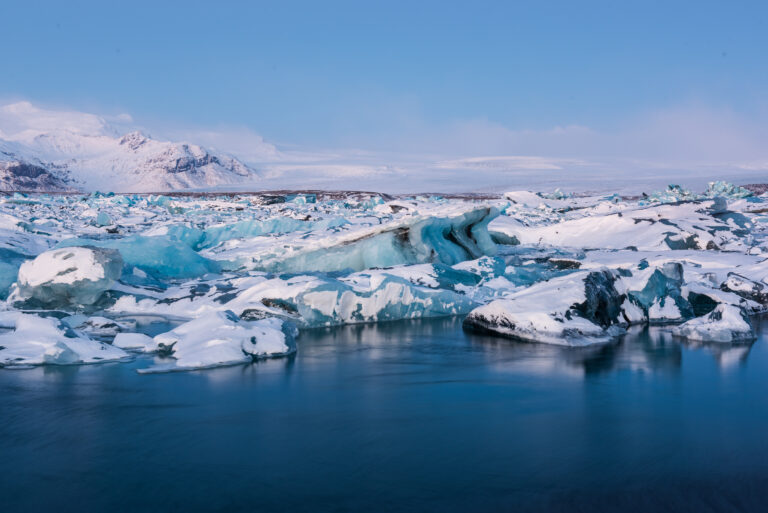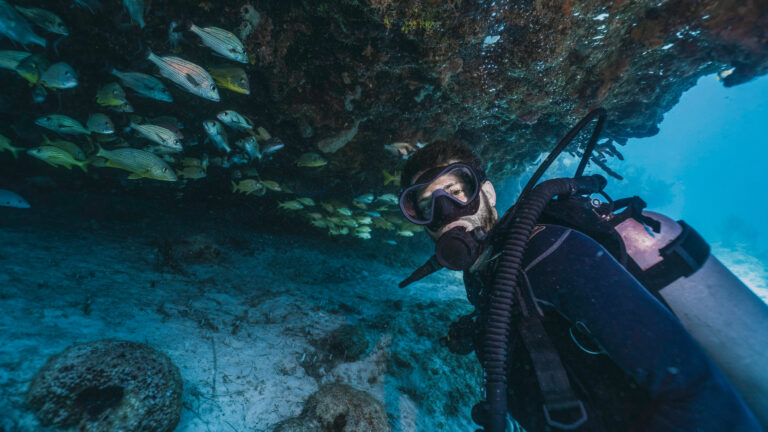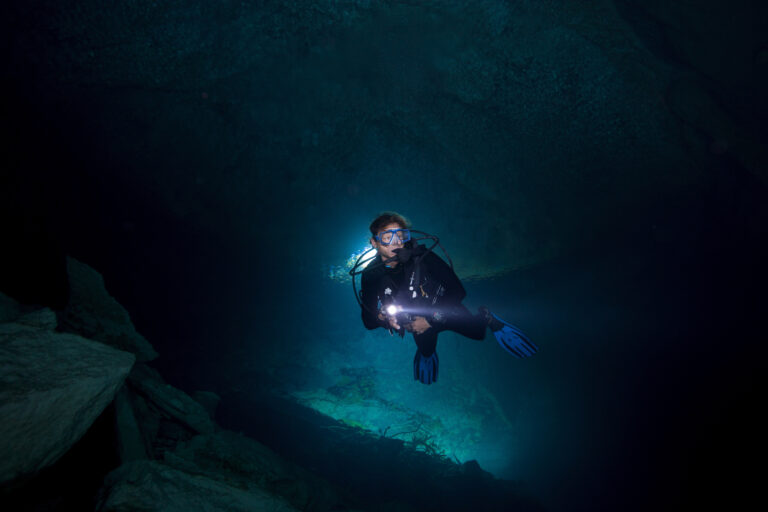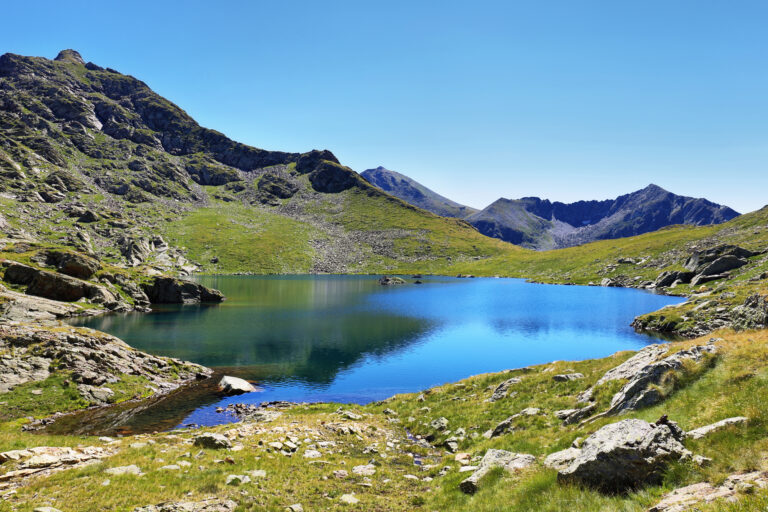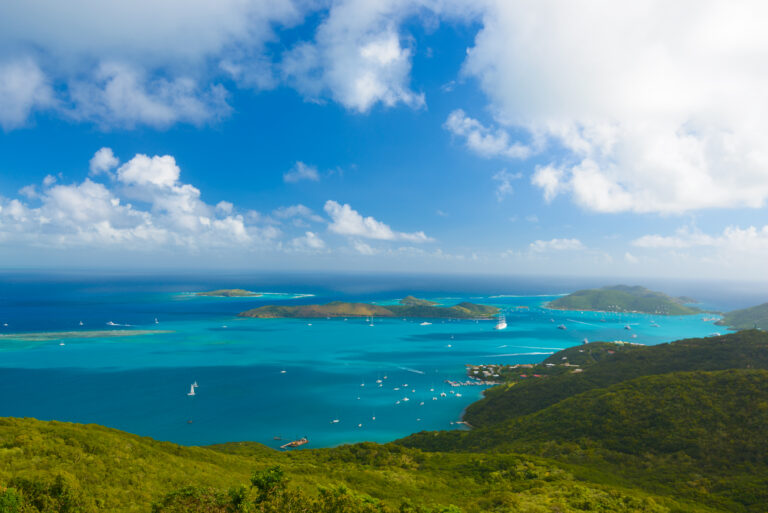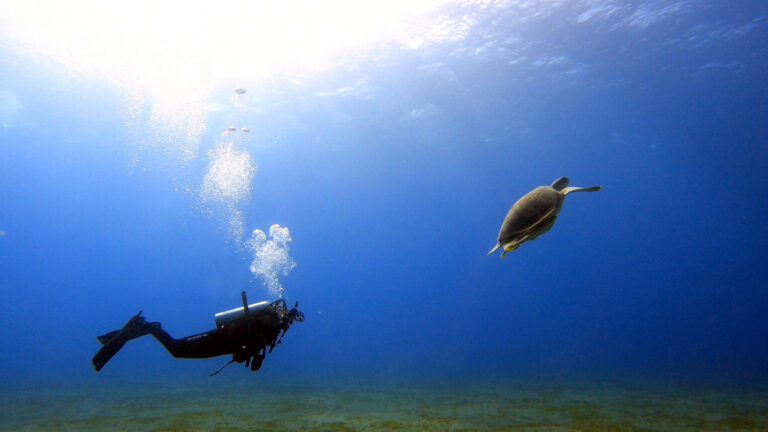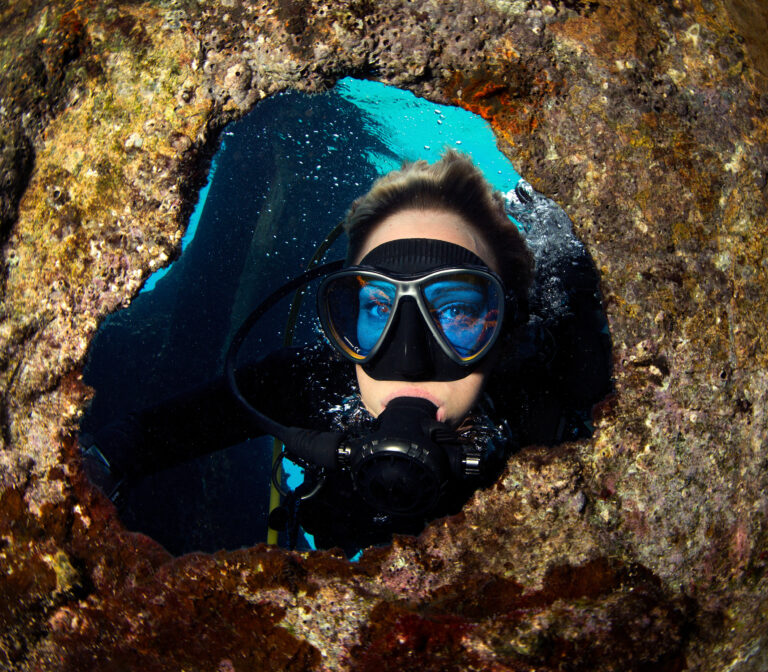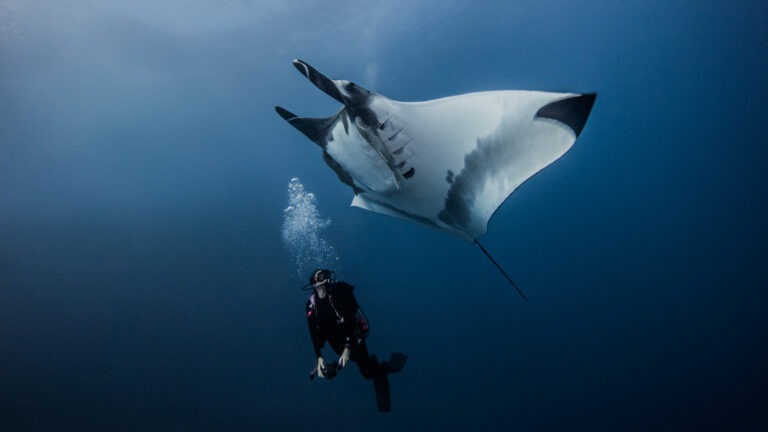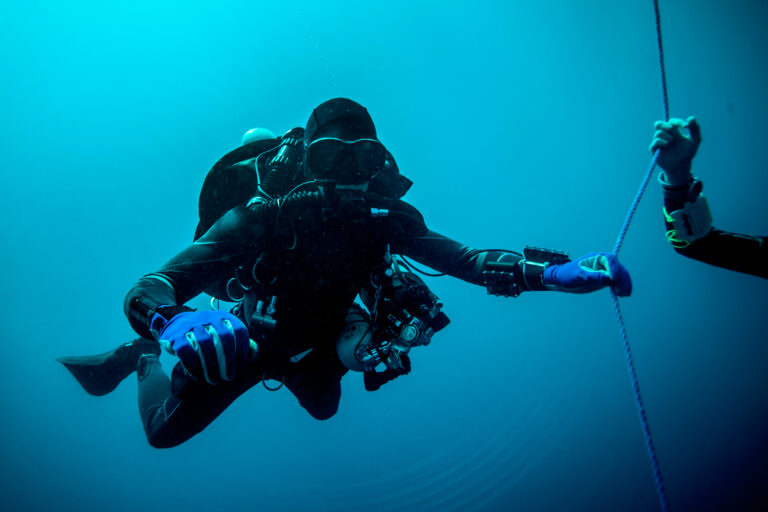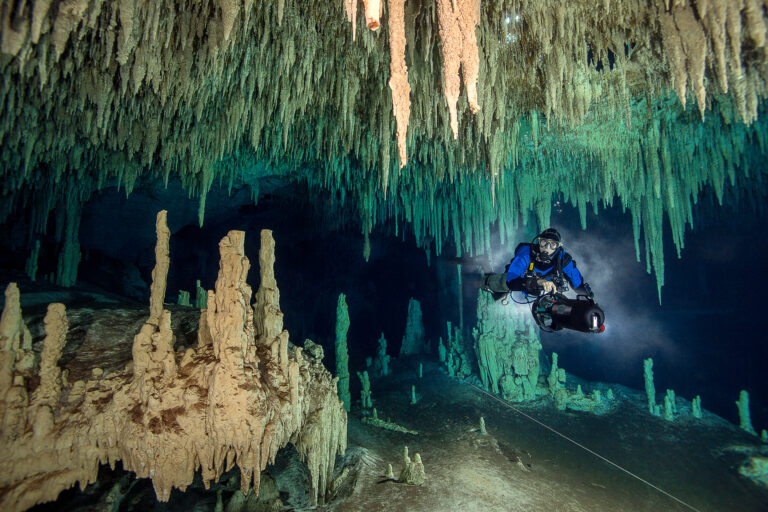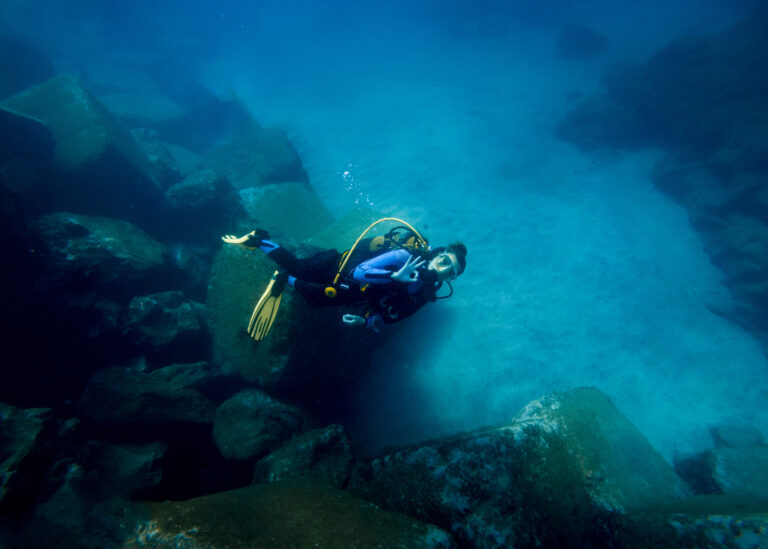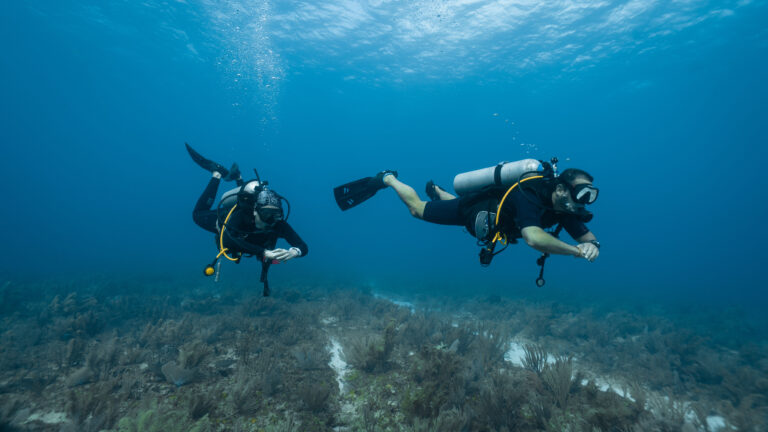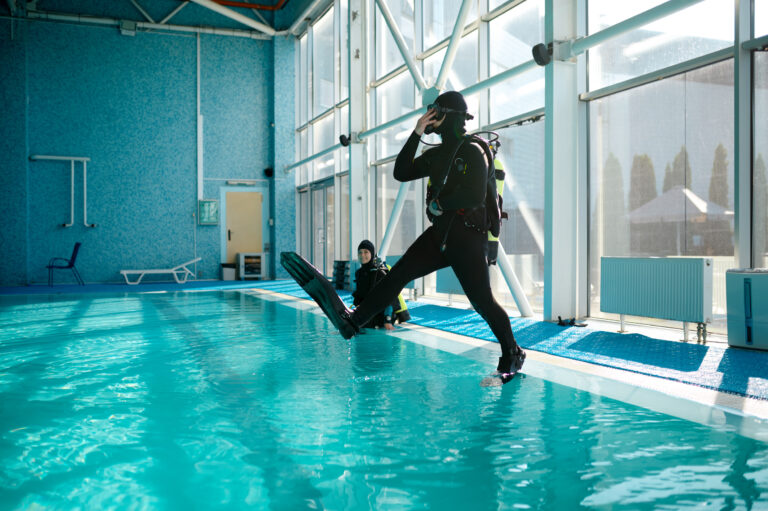SCUBA DIVERS’ TRAVEL GUIDE TO Slovenia
Slovenia is a hidden gem for scuba divers who want to explore the diverse and pristine waters of the Adriatic Sea. This small country offers a variety of diving experiences, from wrecks and caves to reefs and walls. You can encounter colorful marine life, such as octopus, seahorses, nudibranchs, and even dolphins. Slovenia also has a rich cultural and natural heritage, with charming towns, castles, alpine lakes, and forests. Whether you are looking for adventure, relaxation, or history, Slovenia has something for every scuba diver.
LOCATION AND GEOGRAPHY
Nestled in the heart of Europe, Slovenia may be diminutive in size, but it boasts an unexpectedly diverse range of scuba diving experiences thanks to its unique geography. This picturesque country, bordered by Italy, Austria, Hungary, and Croatia, offers access to the northernmost arm of the Mediterranean Sea—the Adriatic—along its slender, 46.6-kilometer coastline. Divers here can explore the underwater realms of the Gulf of Trieste, encountering a variety of marine life and intriguing shipwrecks. Inland, Slovenia’s terrain is punctuated by alpine mountains and rolling hills, which give way to a network of more than 10,000 karst caves and subterranean rivers. This geological wonderland includes the famous Lake Bled and the lesser-known but equally enchanting Lake Bohinj, as well as the Idrijca and Soča Rivers, offering freshwater diving opportunities in crystal-clear waters, where divers can marvel at dramatic underwater landscapes, endemic species, and hidden caverns. Whether you’re a marine enthusiast or a cave diving adventurer, Slovenia’s compact and contrasting geography provides a unique and memorable underwater experience.
VISA AND ENTRY REQUIREMENTS
Before planning your underwater adventure in Slovenia, it’s essential to understand the visa and entry requirements. Slovenia is part of the Schengen Area, which means that travelers from other Schengen countries can enter without a visa for short stays of up to 90 days within a 180-day period. For visitors from non-Schengen countries, the requirements vary: many, including the United States, Canada, Australia, and Japan, are also granted visa-free access for short stays under the same 90/180 rule. However, travelers from countries that do not have a visa waiver agreement with the Schengen Area will need to apply for a Schengen visa prior to arrival. It’s important to check the latest information with the Slovenian embassy or consulate in your home country, as visa policies can change. Additionally, ensure your passport is valid for at least three months beyond your planned departure from the Schengen Area. As you prepare to dive into the stunning underwater landscapes of Slovenia, make sure your travel documents are in order for a hassle-free entry.
GETTING TO Slovenia
Getting to Slovenia for an unforgettable scuba diving experience is a journey that promises both ease and adventure. Nestled in the heart of Europe, Slovenia is well-connected by air, with Ljubljana Jože Pučnik Airport serving as the main international gateway, offering flights from numerous European cities. For those preferring land travel, picturesque drives through the countryside are possible from neighboring countries like Italy, Austria, Croatia, and Hungary, thanks to an extensive network of highways. Train travel is another scenic option, with international rail services linking Slovenia to nearby European capitals. Once in Slovenia, the journey to dive sites is a continuation of the adventure, with the country’s compact size allowing for short and scenic drives to the Adriatic coast or to the enchanting freshwater dive spots, such as Lake Bled or the crystal-clear springs of the Soča Valley. Whether arriving by air, road, or rail, the path to Slovenia’s underwater wonders is as accessible as it is beautiful.
BEST TIME TO DIVE
The best time to scuba dive in Slovenia is during the late spring through early autumn months, from May to September, when the weather is warm and the waters of the Adriatic Sea are at their most inviting. During this period, the visibility in the sea can exceed 20 meters, providing crystal-clear views of the underwater landscapes and marine life. Slovenia’s freshwater dive sites, such as Lake Bled and Lake Bohinj, also offer optimal conditions during these months, with comfortable water temperatures and good visibility. While diving is possible year-round, the winter months can be quite cold, and many dive centers may operate on a reduced schedule or close for the season. Therefore, planning your dive trip for the warmer months will ensure the best experience exploring Slovenia’s unique underwater environments, from enchanting sea creatures to mysterious sunken treasures hidden beneath the surface.
ACCOMMODATION OPTIONS
In the enchanting country of Slovenia, scuba divers will find a variety of accommodation options to suit their needs and preferences, ensuring a comfortable stay between underwater adventures. Nestled within the picturesque landscapes, from the idyllic Adriatic coast to the lush inland areas, divers can choose from cozy seaside guesthouses, boutique hotels, and private vacation rentals that offer easy access to the country’s prime diving spots, such as the famed Lake Bled and the marine-rich Piran Bay. For those seeking a more immersive experience, several dive resorts and centers provide specialized packages that include gear rentals, guided dives, and even on-site filling stations. Whether you’re looking for the rustic charm of a countryside farmhouse or the luxury of a modern hotel with full amenities, Slovenia’s warm hospitality and diverse accommodations ensure that every diver can find the perfect home base to rest, recharge, and relive the day’s underwater discoveries.
DIVE OPERATORS AND DIVE SHOPS
In the heart of Europe, Slovenia, with its compact yet diverse landscape, offers a unique scuba diving experience, particularly in its crystalline freshwater lakes and the Adriatic Sea. Dive operators and shops in Slovenia are well-equipped and staffed by professionals who provide a range of services from beginner courses to advanced technical diving certifications. The most prominent dive shops are found in the coastal town of Piran, where the Adriatic beckons with its underwater cliffs and marine life, and at Lake Bled and Lake Bohinj, where divers can explore submerged alpine vistas. Slovenian dive operators are known for their intimate knowledge of local conditions and dive sites, ensuring a safe and personalized experience. They often offer guided dives, which can include fascinating encounters with historical artifacts and endemic species. Whether you’re looking to explore the sunken treasures of the Adriatic or the serene depths of glacial lakes, Slovenia’s dive shops will provide the expertise, equipment, and excursions to make your underwater adventure memorable.
TRANSPORTATION WITHIN Slovenia
In Slovenia, a country renowned for its diverse landscapes and rich cultural heritage, transportation options for scuba divers are convenient and efficient, ensuring easy access to the country’s underwater treasures. The most practical way to explore Slovenia’s dive sites, which are primarily located along its small stretch of the Adriatic coast and within its network of freshwater lakes and rivers, is by car. Car rentals are readily available, offering the flexibility to visit remote diving spots like Lake Bled or the famed Moon Bay (Mesečev zaliv) at your own pace. For those who prefer public transport, regular bus services connect major cities to coastal towns such as Piran and Koper, where local dive centers can often arrange pickups for divers. Train travel is less common for reaching dive destinations, but it offers a scenic alternative for traversing the country’s picturesque terrain. Regardless of your chosen mode of transport, Slovenia’s compact size means that dive sites are never too far away, allowing for an abundance of underwater exploration in this hidden gem of European diving.
CURRENCY AND PAYMENT METHODS
In Slovenia, the official currency is the Euro (EUR), which is convenient for travelers from the Eurozone. ATMs are widely available in cities and tourist areas, allowing divers to withdraw cash as needed. Credit cards, particularly Visa and MasterCard, are accepted at most dive shops, resorts, and larger establishments. However, it’s advisable to carry some cash for smaller, rural dive sites or local vendors who may not accept cards. When booking scuba diving excursions, especially with local operators, confirm the preferred payment method in advance. Some may also accept payment in advance via bank transfer or online payment platforms. It’s always a good idea to inform your bank of your travel plans to avoid any issues with card transactions while abroad. Keep in mind that tipping is appreciated for exceptional service, but it is not as customary or expected as in other countries, so it’s best to do so at your discretion.
LANGUAGE AND COMMUNICATION
When diving in Slovenia, a country nestled between Italy, Austria, Hungary, and Croatia, you’ll find that the primary language spoken is Slovene. However, due to the country’s touristic appeal and its location at the crossroads of various cultures, English is widely understood in the diving community, especially within dive centers and among instructors. Italian and German are also commonly spoken due to the proximity of these countries and historical ties. For seamless communication underwater, divers use standardized hand signals, which transcend language barriers and ensure safety and coordination during dives. It’s advisable to familiarize yourself with these signals and any specific ones that local dive operators might use. Additionally, learning a few basic phrases in Slovene can be a courteous way to connect with local divers and enhance your overall experience in Slovenia’s underwater realms.
LOCAL CULTURE AND ATTRACTIONS
Nestled in the heart of Europe, Slovenia may be diminutive in size but it’s rich in cultural heritage and natural attractions that complement its underwater offerings. After exploring the serene beauty of Slovenia’s aquatic realms, divers can immerse themselves in the local culture by visiting the enchanting capital city of Ljubljana, with its picturesque bridges and the medieval Ljubljana Castle perched atop a hill. The country’s diverse landscape is dotted with historic towns like Piran, where Venetian Gothic architecture whispers tales of a maritime past, and the UNESCO-listed Škocjan Caves, a subterranean wonder that rivals the beauty of the underwater world. Slovenian cuisine, a delightful fusion of Mediterranean, Alpine, and Central European flavors, offers a tantalizing way to refuel, with dishes like seafood from the Adriatic, hearty Carniolan sausage, and the delectable Prekmurska gibanica dessert. Slovenia’s compact size means that divers can enjoy a morning dive in the crystal-clear waters of Lake Bled or the Idrijca River, and still have ample time to savor the local wines of the Vipava Valley or attend a traditional folk festival, making it an ideal destination for those who seek both aquatic adventure and cultural enrichment.
CULTURAL ETIQUETTE AND TIPS
When scuba diving in Slovenia, it’s important to embrace the local customs and etiquette to ensure a respectful and enriching experience. Slovenians are known for their hospitality and environmental consciousness, so divers should be mindful of preserving the natural beauty of dive sites, such as the famous Lake Bled and the Adriatic Sea. Greet locals with a friendly “Dober dan” (Good day) and show appreciation for their assistance or guidance. It’s customary to remove your shoes before entering someone’s home or certain indoor spaces, so be prepared to do so if invited. When diving, maintain good buoyancy control to avoid damaging the delicate underwater ecosystems. After your dive, it’s not uncommon to share stories and perhaps a local beverage like a glass of “refosk” or “teran” wine with your dive crew or hosts. Always remember to tip your dive guides and boat crew appropriately, as this is a gesture of gratitude for their service. By observing these cultural nuances, you’ll foster a sense of camaraderie and respect that is central to the Slovenian way of life.
LOCAL LAWS AND REGULATIONS RELEVANT TO TOURISTS
When planning a scuba diving trip to Slovenia, it is essential to familiarize yourself with the local laws and regulations to ensure a safe and lawful experience. Slovenia, while not immediately associated with diving, offers unique freshwater diving opportunities, particularly in its stunning lakes and rivers. Divers must adhere to the Slovenian Diving Federation (SDF) rules, which require all divers to be certified by a recognized organization and to carry a valid diving card and logbook. Diving in protected areas, such as Triglav National Park, is subject to specific regulations to preserve the delicate aquatic ecosystems, and permits may be required. It is also important to note that diving in some locations may be restricted or prohibited during certain times of the year to protect wildlife breeding seasons. Additionally, the use of dive flags is mandatory to alert boats to the presence of divers below. Always check for the latest information on protected areas and seasonal restrictions, and consider hiring a local guide or joining a local dive center to navigate these regulations with ease.
SAFETY TIPS AND EMERGENCY CONTACTS
When diving in Slovenia, safety should be your utmost priority. Always dive within your certification limits and ensure that your equipment is well-maintained and appropriate for the conditions. Due to Slovenia’s diverse range of dive sites, including alpine lakes and the Adriatic Sea, it’s crucial to be prepared for varying temperatures and visibility. Be aware of local weather patterns and avoid diving in unsafe conditions. It’s essential to dive with a buddy and stay within close proximity to each other. Familiarize yourself with the local emergency procedures and keep the contact information for the nearest hyperbaric chamber, which is the University Medical Centre Ljubljana, reachable at +386 1 522 50 50. Additionally, keep the contact details of the DAN (Divers Alert Network) Europe emergency number, +39 06 4211 8685, and ensure you have appropriate dive insurance that covers hyperbaric treatment. In case of an emergency, contact the national emergency number 112. Always inform your dive operator or local contact of your dive plan and expected return time. By following these safety tips and having emergency contacts readily available, you can help ensure a safe and enjoyable diving experience in Slovenia.
HEALTH AND TRAVEL INSURANCE
When planning a scuba diving trip to Slovenia, it is crucial to consider your health and travel insurance coverage. While Slovenia boasts enchanting underwater experiences in the Adriatic Sea and its freshwater lakes, such as Lake Bled and Lake Bohinj, diving always carries inherent risks. Ensure that your travel insurance policy includes comprehensive medical coverage that extends to scuba diving activities, as standard policies may exclude adventure sports. Check for specifics such as hyperbaric chamber treatment coverage, medical evacuation, and repatriation in the unfortunate event of an accident. Additionally, since Slovenia is part of the European Union, European Health Insurance Card (EHIC) holders are entitled to state-provided healthcare at reduced costs or sometimes free. However, the EHIC is not a substitute for travel insurance; it does not cover private healthcare or costs such as a return flight to your home country or lost/stolen property. Therefore, it is advisable to have both an EHIC and a robust travel insurance policy to ensure peace of mind as you explore Slovenia’s underwater treasures.

